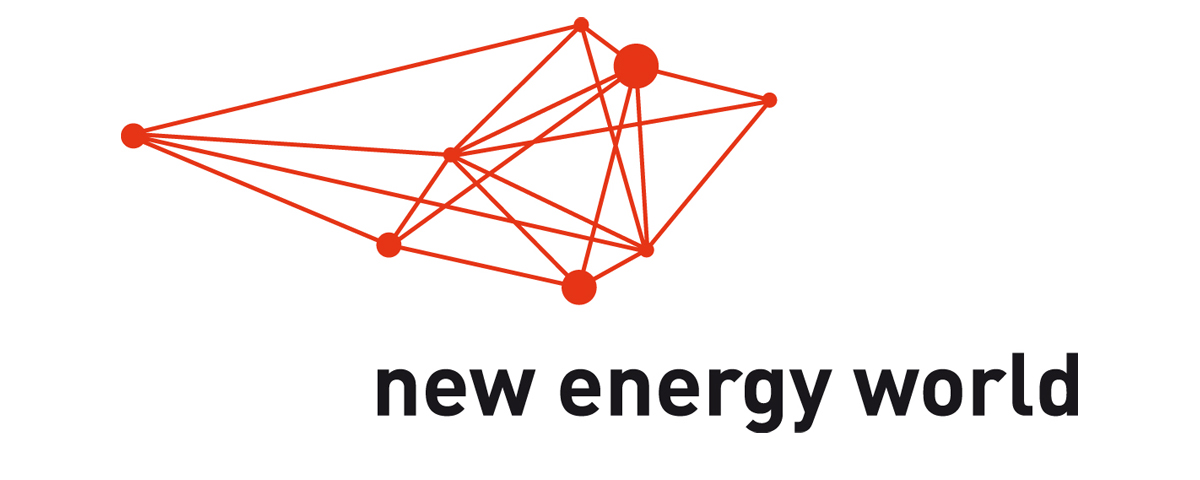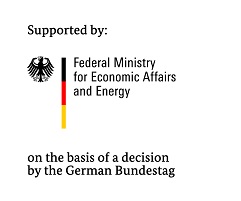
Development of a fuel cell drive for recreational crafts
4. December 2018
Conference: New Energy World
11. December 2018open_BEA: Open Battery Models for Electrical Grid Applications

In the open_BEA project, we develop open source battery models for various stationary and mobile battery storage applications. These will be integrated into an open source/open data platform in order to investigate various network-related issues.
In order to increase the share of renewable energy in Germany's energy supply, it is necessary to link different sectors of the energy system – such as electricity, heat, or mobility – with each other. However, it has not yet been fully investigated, which effects increasing sector interaction has on grid expansion needs. It is also still unclear to what extent electric vehicles, the number of which will prospectively increase over the next few years, could be used as mobile storage devices in the energy system and whether charging stations could provide grid services, such as reactive power provision.
The aim of open_BEA is therefore to develop an holistic model integrating the detailed simulation of battery storages, e-mobility and power grids. This will be conducted jointly with the Technical University of Munich and the Bavarian Centre for Applied Energy Research and will be available as an open source tool to a broad group of users.
With the open_BEA tool, it will then, for example, be possible to model how stationary storage systems should be optimally positioned, dimensioned, and operated in order to provide network-related services. It will as well be possible to use parameterized simulations to check which storage technologies are cost-optimal for a given application.
Project duration: November 2018 – October 2021
In order to increase the share of renewable energy in Germany's energy supply, it is necessary to link different sectors of the energy system – such as electricity, heat, or mobility – with each other. However, it has not yet been fully investigated, which effects increasing sector interaction has on grid expansion needs. It is also still unclear to what extent electric vehicles, the number of which will prospectively increase over the next few years, could be used as mobile storage devices in the energy system and whether charging stations could provide grid services, such as reactive power provision.
The aim of open_BEA is therefore to develop an holistic model integrating the detailed simulation of battery storages, e-mobility and power grids. This will be conducted jointly with the Technical University of Munich and the Bavarian Centre for Applied Energy Research and will be available as an open source tool to a broad group of users.
With the open_BEA tool, it will then, for example, be possible to model how stationary storage systems should be optimally positioned, dimensioned, and operated in order to provide network-related services. It will as well be possible to use parameterized simulations to check which storage technologies are cost-optimal for a given application.
Project duration: November 2018 – October 2021
Go to the official open_BEA project website
In this project, RLI assumes the following tasks:
- Further development of scientific methods for the identification of mobility needs and their local and temporal allocation
- Analysis of the flexibility potential of e-mobility for energy systems
- Further development of scientific methods for grid-compatible positioning of battery storage devices and charging infrastructure
- Analysis of the possible benefits of e-mobility and battery storage for reactive power management in distribution networks
- Implementation of open software for distribution network planning, considering the integration of e-mobility and battery storage
- Compiling expected challenges regarding network planning and operation for network operators
- Development of recommendations for action:
- For network operators: demonstrating cost-efficient options
- For committees, associations, and politicians: indication of regulatory obstacles
- Conducting workshops for introduction to the software

Research at RLI is supported by the Reiner Lemoine Foundation.
Funding reference number: 03ET4072B, 6th Energy Research Program
Pedersen, Multiperiod Optimal Power Flow Problem in Distribution System Planning, 2019
Kucevic et al., Reducing grid peak load through the coordinated control of battery energy storage systems located at electric vehicle charging parks, Applied Energy, Vol. 295, 2021
Pedersen et al., Distribution System Planning with Battery Storage using Multiperiod Optimal Power Flow, Proceedings of the 14th International Renewable Energy Storage Conference, Atlantis Highlights in Engineering Vol.6, 2021
Helfenbein, Analyse des Einflussesnetzdienlicher Ladestrategien auf Verteilnetze aufgrund der zunehmenden Netzintegration von Elektrofahrzeugen, 2021
Final report open_BEA: Open Battery Models for Electrical Grid Applications, 2022
Kucevic et al., Reducing grid peak load through the coordinated control of battery energy storage systems located at electric vehicle charging parks, Applied Energy, Vol. 295, 2021
Pedersen et al., Distribution System Planning with Battery Storage using Multiperiod Optimal Power Flow, Proceedings of the 14th International Renewable Energy Storage Conference, Atlantis Highlights in Engineering Vol.6, 2021
Helfenbein, Analyse des Einflussesnetzdienlicher Ladestrategien auf Verteilnetze aufgrund der zunehmenden Netzintegration von Elektrofahrzeugen, 2021
Final report open_BEA: Open Battery Models for Electrical Grid Applications, 2022









